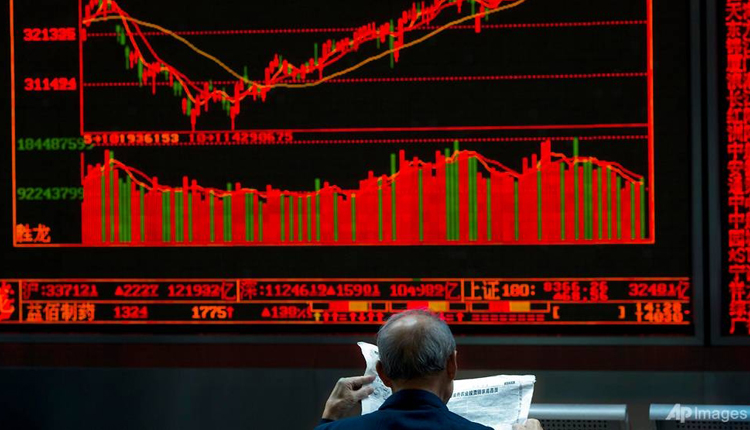Asian markets closed lower on Friday, following the release of U.S. retail data overnight which raised concerns over a slowing American economy. Investors await developments from the ongoing U.S-China trade negotiations in Beijing.
Mainland Chinese markets saw losses on the day. The Shanghai composite slipped 1.37 percent to close at 2,682.38 while the Shenzhen component declined 1.148 percent to finish its trading day at 8,125.63. The Shenzhen composite also declined 0.67 percent to close at 1,389.47..
Hong Kong’s Hang Seng index slipped 1.91 percent in its final hour of trading.
The moves came after Chinese inflation data for January missed expectations, coming in at 1.7 percent higher as compared to a year ago, the National Bureau of Statistics said on Friday.
Economists polled by Reuters were expecting China’s Consumer Price Index to come in at 1.9 percent higher on year. December CPI, a gauge of prices for goods and services, rose 1.9 percent over the same period.
Meanwhile, high level trade negotiations between China and the U.S. continued in Beijing as investors watched closely for developments.
Elsewhere in Asia, Japan’s Nikkei 225 was down 1.13 percent to close at 20,900.63 while the Topix shed 0.79 percent to end at 1,577.29. Shares of Japanese conglomerate Softbank Group fell 4.4 percent.
South Korea’s Kospi shed 1.34 percent to close at 2,196.09 as shares of industry heavyweight Samsung Electronics and chipmaker SK Hynix fell 3.05 percent and 4.65 percent, respectively.
Australia’s ASX 200 bucked the overall trend in the region as it rose 0.11 percent to close at 6,066.10. The energy subindex rose 0.76 percent as oil stocks mostly gained. Santos advanced 0.75 percent, Woodside Petroleum gained 1.49 percent and Beach Energy added 2.17 percent.
US retail numbers a ‘shocker’
Overnight on Wall Street, the S&P 500 and Dow Jones Industrial Average closed lower on the back of U.S. retail sales in December coming in far below expectations.
U.S. retail sales fell 1.2 percent in December, marking their biggest monthly drop since September 2009, according to The Commerce Department. The department also said retail sales fell 0.9 percent in December when excluding gasoline station sales.
“The main news has been the ‘unbelievable’ and shocking US retail sales release for December,” David de Garis, a director and senior economist at National Australia Bank, said in a morning note. “Many analysts were left dumbfounded by the release.”
“The equity meltdown? Maybe there is something in that perhaps, as there was from the apparent inability of seasonal adjustment factors to cope with the now-pervasive bring forward of (on line) sales into November from Black Friday and Cyber Monday. Perhaps revisions are pending,” de Garis said.
The economist also said the data release could “open a risk the US economy might be slowing faster than commonly expected,” as it came along with a further increase in jobless claims.
Currencies and oil
The U.S. dollar index, which tracks the greenback against a basket of its peers, was at 97.029 after seeing a high above 97.2 yesterday.
The Japanese yen traded at 110.44 against the dollar after touching an earlier high of 110.25. The Australian dollar was at $0.7092 after seeing an earlier high of $0.7107.
Oil prices rose in the afternoon of Asian trading hours. The international benchmark Brent crude futures contract gained 0.4 percent to $64.83 per barrel after touching an earlier high of $65.10 per barrel — surpassing the $65 per barrel level for the first time in 2019. The U.S. crude futures contract advanced 0.29 percent to $54.57 per barrel.
Source: CNBC
